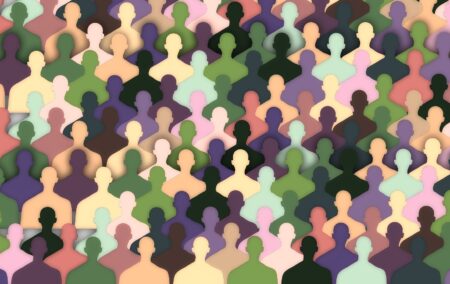Recent events again show how South Africans – or at least those in the chattering classes – remain obsessed with race, to South Africa’s detriment.
The first of these events is a common pastime among many in the media: DA bashing. The country’s biggest opposition party has come in for some criticism for putting forward Geordin Hill-Lewis, currently an MP, as the party’s candidate for the mayoralty of Cape Town ahead of November’s municipal election. Predictably there was much gnashing of teeth over the fact that Hill-Lewis is a white male and, given the demographic make-up of Cape Town, this is allegedly a misstep by the party.
Ferial Haffajee, writing in the Daily Maverick, said that this was proof that the DA was now a ‘representative of white society’ and that the party had drifted to the ‘far right,’ following in the wake of its former leader and current federal chairperson, Helen Zille.
A wag on Twitter also shared a doctored picture, comparing a DA campaign poster from 2011, which featured Helen Zille, Lindiwe Mazibuko, and Patricia de Lille, to one (created by the Twitter user) showing Hill-Lewis, DA leader John Steenhuisen, and Western Cape premier Alan Winde. This was presumably meant to indicate how the party had regressed over the past decade.
Tellingly, neither Ms Haffajee nor the aforementioned user on Twitter made mention of the DA’s four other mayoral candidates for the metros.
In Johannesburg its candidate is Mpho Phalatse, in Ekurhuleni, it is Refiloe Nt’sekhe, and Randall Williams (the current mayor) is its candidate in Tshwane. Nqaba Bhanga, the current mayor of Nelson Mandela Bay, is also its candidate in that city.
These are clearly not token positions – Bhanga and Williams are the current chief executives of their cities, while the DA controlled Johannesburg between 2016 and 2019 (meaning Phalatse has a realistic chance of wearing the mayoral chain after 1 November). Meanwhile the ANC was also brought under 50% in Ekurhuleni in the last municipal election, meaning that Nt’sekhe also has a real shot of getting the top job in the East Rand.
At the same time, Ms Haffajee bemoans the fact that David Unterhalter, widely regarded as one of South Africa’s greatest contemporary legal minds, has been passed over for a spot on the Constitutional Court, seemingly only due to his race, and to a lesser degree, his gender.
Tragic
I am not a legal expert, but the consensus among those who know more about these issues than I do concur that Unterhalter would be a valuable addition to our highest court, and the fact that his immutable characteristics preclude him from making a contribution there is tragic (and his colleague, Alan Dodson, seems to have been excluded on similar grounds).
Ms Haffajee laments the DA’s selecting Hill-Lewis – as well as Unterhalter’s non-selection as a candidate for the highest court in the land – as being contrary to South Africa’s constitutional principle of non-racialism.
However, one cannot have it both ways – either a person’s race and sex need to be the primary factors when considering appointments to a position or they should not, whether the person is Hill-Lewis, Phalatse, Williams, Unterhalter, or any other South African.
And any country that wants to succeed will make sure that the best are appointed to vital positions and not exclude on arbitrary grounds those who could make a contribution.
And as IRR surveys show, most South Africans want appointments to be made on grounds of merit. The latest survey echoes the findings of other previous surveys, now going back two decades. Only ten percent of respondents (and 13% of black respondents) in our latest survey believe that race rather than merit should be the most important factor in appointing people.
Some will say that the word ‘merit’ is a dogwhistle for ‘white’ but nothing could be further from the truth.
On merit
To take an example from the world of sport, the Springboks this weekend beat the All Blacks in a Test match for the ages, with a starting line-up that included seven black (African) players, a record, with every single player being there on merit.
Now, of course, the use of a sporting analogy risks tipping my point into the banal, but it is a reflection of what can happen when excellence is preferred over racial bean-counting. The excellent will emerge and be a broad reflection of South Africa in all its glory.
And herein lies the tragedy of modern South Africa – many people in this country are prevented from reaching their full potential. This is partly a legacy of our racially discriminatory past but also increasingly because of the failures of the ANC government, which presides over a failing education system and an economy which condemns many people to a life on the margins, where they struggle to scrape a living.
For South Africa to become a country where all its citizens can reach their full potential, reforms (economic and other) are now vital. But at the same time, people who can make a real contribution, whether in politics, business, academia, the judiciary, or any other field, should not be excluded on such arbitrary grounds as their skin colour.
For South Africa to become the country we know it can be, non-racialism needs to be a non-negotiable principle.
[Image: Gerd Altmann from Pixabay]
If you like what you have just read, support the Daily Friend


